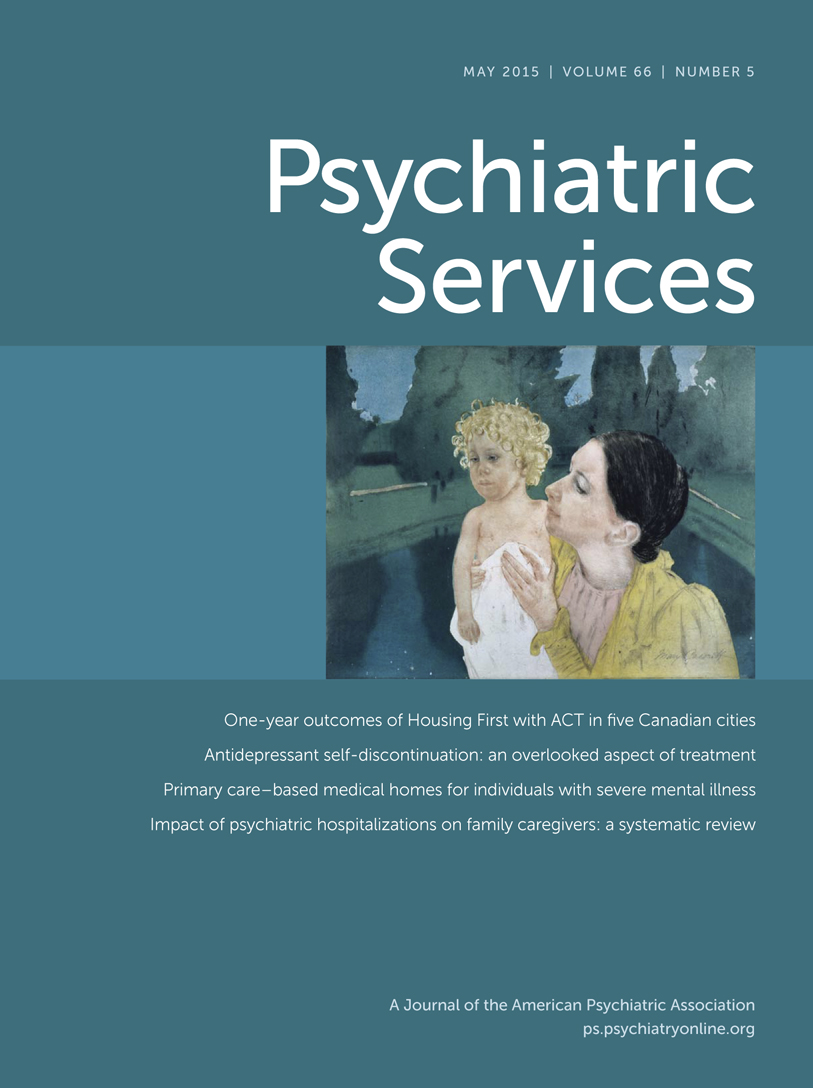One-Year Outcomes of a Randomized Controlled Trial of Housing First With ACT in Five Canadian Cities
Abstract
Objective:
Housing First is a groundbreaking approach to ending chronic homelessness among people with mental illness. This article presents one-year findings from a multisite randomized controlled trial (RCT) comparing Housing First with treatment as usual.
Methods:
The study was a nonblind, parallel-group RCT conducted in five Canadian cities. A sample of 950 high-need participants with severe mental illness, who were either absolutely homeless or precariously housed, was randomly assigned to Housing First (N=469) or treatment as usual (N=481). Housing First participants received a rent supplement, assistance to find housing, and assertive community treatment. Treatment-as-usual participants had access to all other existing programs.
Results:
At one-year follow-up, 73% of Housing First participants and 31% of treatment-as-usual participants resided in stable housing (p<.001, odds ratio=6.35, covariate adjusted difference=42%, 95% confidence interval [CI]=36%−48%). Improvement in overall quality of life was significantly greater among Housing First participants compared with treatment-as-usual participants (p<.001, d=.31, CI=.16–.46). Housing First participants also showed greater improvements in community functioning compared with treatment-as-usual participants (p=.003, d=.25, CI=.09–.41).
Conclusions:
Compared with treatment as usual, Housing First produced greater improvements in housing stability, quality of life, and community functioning after one year of enrollment. The study provides support for adopting Housing First as an approach for ending chronic homelessness among persons with severe mental illness, even if they are actively symptomatic or using substances.




